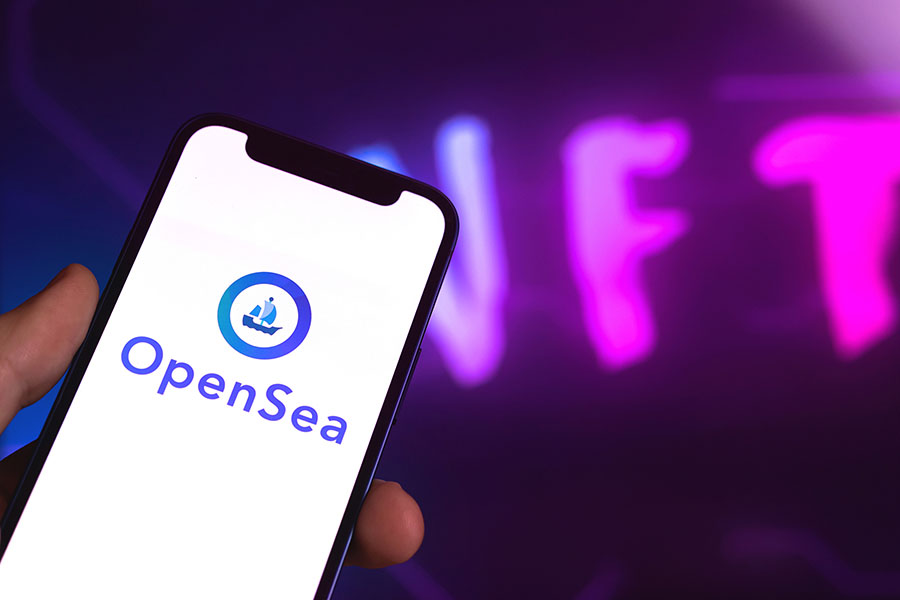 Image: Shutterstock
Image: Shutterstock
OpenSea, a non-fungible token (NFT) marketplace, recently announced its first royalty enforcement tool in a blog post. With this move, the company added to the ongoing NFT royalty debate. According to the blog post, the new tool’s goal was to make creator fees, also known as royalties, enforceable on-chain. It was meant to be applicable to new collections listed on the platform from 8 November onwards.
In an official tweet, OpenSea said: “There has been a lot of discussion in recent months about business models for NFT creators and whether creator fees (“royalties”) are viable.
Given our role in the ecosystem, we want to take a thoughtful, principled approach to this topic and lead with solutions.
2/ It’s clear that many creators want the ability to enforce fees on-chain, and we believe that the choice should be theirs – not a marketplace’s – to make.
So we’re building tools we hope will balance the weight of putting more power in the hands of creators to control their business model.
3/ To that end, we are today launching a tool for chain enforcement of creation fees for *new collections* From 12:00 PM ET on Tuesday, November 8th, OpenSea will only enforce creator fees for new collections that use an on-chain enforcement tool such as like this one.”
However, the approach and implementation did not go down well with everyone. Reactions from the NFT creator and the Twitter community have been mixed. Wab.eth, co-founder of The Pixlverse and Pixl Labs and founder of the Sappy Seals NFT collection, said they fundamentally disagree with the removal of royalties. However, they appreciated the execution. As a result, OpenSea is now changing its guidelines in response to complaints from some Web3 builders.
OpenSea revealed a number of changes to its own approach to NFT royalties in a tweet thread today. The changes include the formation of the Creator Ownership Research Institute (CORI). There is a group that will oversee the curation of the list of Ethereum marketplaces blocked by the “Operator Filter” tool, as well as guidelines related to its development.
Specifically, creator royalties are fees associated with the sale of NFTs that are typically set between 5 percent and 10 percent of the sale price. These fees are paid to the creators of a given NFT project by the seller. These fees can be a significant source of income for projects with high trading volume. And the rejection of these fees by NFT traders and most marketplaces in recent months has put these revenues at risk.
Nifty Gateway, Zora, Manifold, SuperRare and Foundation are among the NFT marketplace and smart contract builders included in CORI. In the thread, OpenSea admitted that it had “heard compelling feedback from creators about the lack of an alternative mechanism to earn creator royalties on OpenSea other than leveraging our enforcement tool.”
After backlash from creators over the proposed changes, OpenSea stated that it would continue to enforce royalties on all NFT projects created before that date. Furthermore, the company will move its enforcement deadline to January 2, 2023. This means that new projects launched on or after November 8 that did not use the blocklist tool will now have creator royalties imposed on the marketplace.
The author is the founder of yMedia. He ventured into crypto in 2013 and is an ETH maximalist. Twitter: @bhardwajshash
Check out our festive offers of up to Rs.1000/- off website prices on subscriptions + gift voucher worth Rs 500/- from Eatbetterco.com. Click here to know more.
 Image: Shutterstock
Image: Shutterstock

